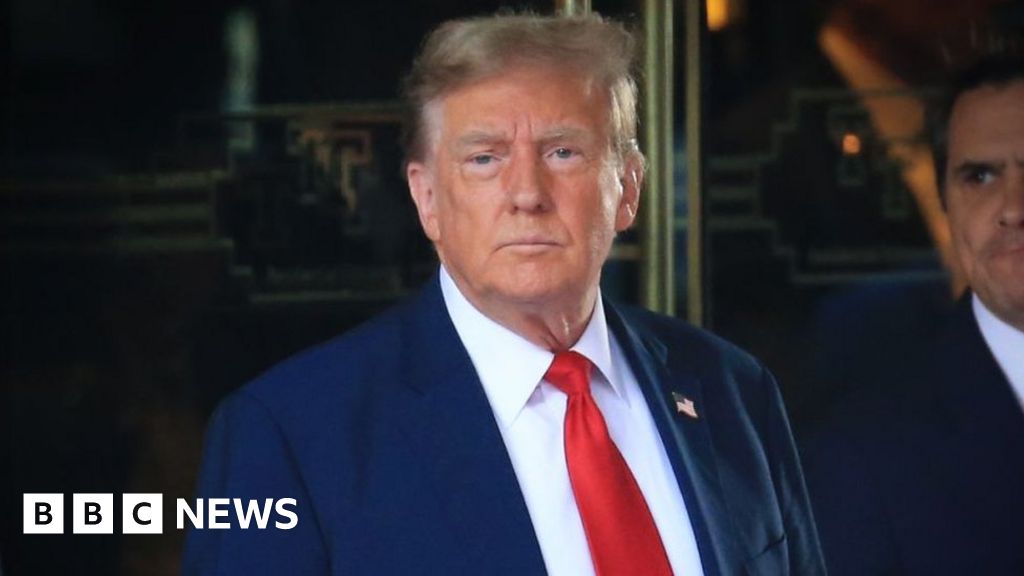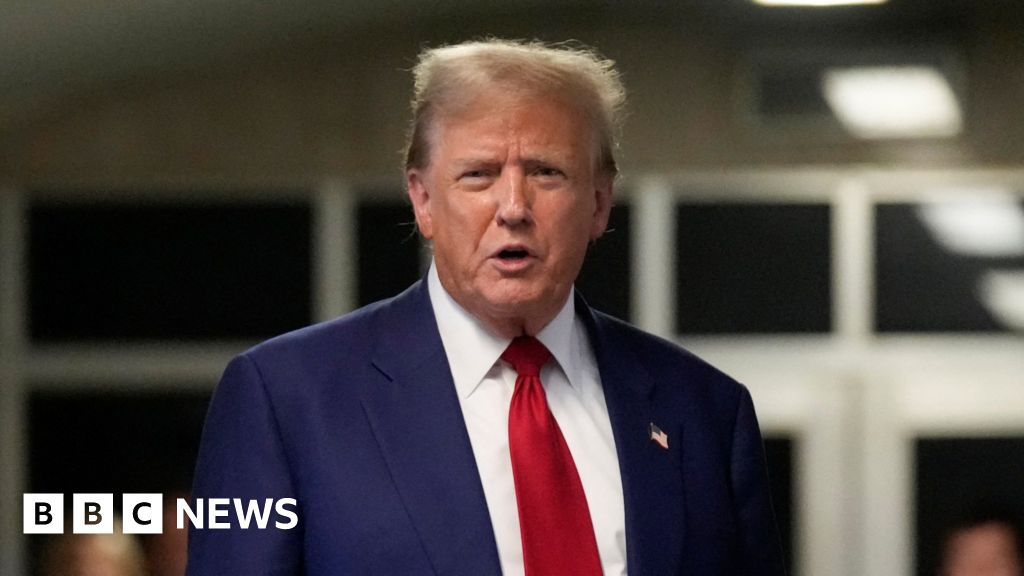- Joined
- Feb 14, 2018
- Runs
- 4,125
Trump challenges $454m penalty in New York civil fraud case
Donald Trump is appealing against a New York judge's ruling that he must pay $454m (£360m) in penalties and interest in a civil fraud case.This month's judgement was $355m, but the amount has soared with interest, which will keep accruing by at least $112,000 per day.
New York Attorney General Letitia James has said if Mr Trump does not pay, she will seek to seize some of his assets.
He was found to have inflated property values to obtain better loan terms.
Judge Arthur Engoron also banned the former US president from doing business in the state for three years.
Monday's appeal from the Republican presidential frontrunner means yet another legal case of his will drag further into election season as he prepares for a likely rematch against Democratic President Joe Biden in November.
Mr Trump had said all along he planned on appealing against the ruling, calling it a political witch hunt.
His lawyer, Alina Habba, said on Monday they hope the appeal court "will overturn this egregious fine and take the necessary steps to restore the public faith in New York's legal system".
In their court filing, the attorneys said they were asking the appellate division to decide whether Judge Engoron's court "committed errors of law and/or fact" and whether it "abused its discretion" or "acted in excess of its jurisdiction".
The former president's lawyers have also argued that he was wrongly sued under a consumer-protection statute typically used to rein in businesses that rip off customers.
Mr Trump's legal team has previously challenged rulings by Judge Engoron at least 10 times, including a gag order.
The appeals process could last a year or longer.
Mr Trump could be granted a pause on collection of the judgement if he offers up money, assets or an appeal bond covering the amount owed. It is unclear what route he will take.
Mr Trump's two adult sons and co-defendants, Donald Jr and Eric, were ordered to pay $4m each and are barred for two years from doing business in New York. They have maintained there was no wrongdoing and joined their father's appeal on Monday.
Adding to the drain on his cash reserves, the ex-president was last month ordered to pay $83m after losing a defamation case to E Jean Carroll, a woman he was found to have sexually abused.
According to a Forbes estimate, Mr Trump is worth about $2.6bn. Though it is unclear how much cash he has on hand, he testified last year he has $400m in liquid assets.
The civil trial that began in October focused mostly on determining penalties against Mr Trump since Judge Engoron had already ruled the ex-president liable for business fraud.
He faces another case in his hometown of New York City next month. In those criminal proceedings, it is alleged that Mr Trump falsified business records to conceal hush money paid to an adult film star before the 2016 election.
On Monday, the Manhattan prosecutor who is bringing that case asked a judge for a gag order on Mr Trump.
The district attorney's office said such a measure was needed to protect jurors, witnesses and court staff from Mr Trump's "long history of making public and inflammatory remarks".
Source: BCC








